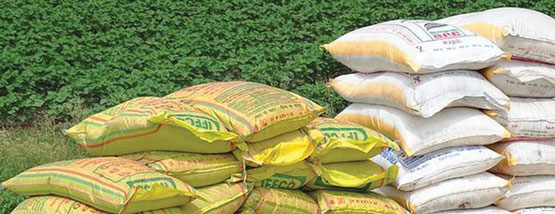Urea stock rises as imports normalized
Industry Desk: The complication in urea fertilizer imports due to the dollar crisis has been dispelled, according to the Bangladesh Chemical Industries Corporation (BCIC). The normalization of imports has augmented supply against demand in the local market and boosted the government’s urea stock compared to the previous year, said sources at the BCIC – the agency responsible for the import and production of urea.
Farmers across the country had to suffer due to a shortage and high prices of urea in the last Aman season. The government on 1 August increased the price of urea by Tk6 per kg.
According to BCIC sources, Bangladesh has an agreement with Saudi Arabia to import 4.80 lakh tons of fertilizer in 16 lots (30,000 tons per lot) under the government-to-government (g2g) system.
But in September two Saudi banks cancelled the letters of credit (LCs) for the sixth and seventh lots as payments had not been cleared on time, which also affected the imports of subsequent lots.
At the time, BCIC wrote to Bangladesh Bank requesting it to give instructions to the banks concerned to normalize the import situation as soon as possible.
“Thanks to the timely intervention of the central bank, the issue was resolved quickly and imports of the remaining lots of urea resumed. The import of the 16th lot of urea is currently under process,” a senior official of BCIC told on condition of anonymity.
Apart from this, the government is also planning to import an additional 1.20 lakh tons of urea from Saudi Arabia, he said.
With the latest imports, the government now has 9.63 lakh tons of urea in stock against a demand for three lakh tons in December, according to BCIC sources.
There are more than 2.5 lakh tons of urea in the market at present, with 5.82 lakh tons in the warehouses. Besides, some 3.80 lakh tons of urea are in the port awaiting release.
The government imports 12 lakh tons of urea every year from Saudi Arabia, Qatar and Dubai under the g2g process with Saudi Arabia being the biggest sourcing destination.
The total demand for urea in the country this year is 26 lakh tons. There should be another eight lakh tons of safety stocks. In total, the government has to ensure the supply of 34 lakh tons of urea.
To ensure this supply of urea, the government had planned to produce 10.5 lakh tons of urea locally this year, which was later brought down to 5 lakh tons as several fertilizer factories shut down, adding more pressure on imports amid the ongoing dollar crisis.
According to BCIC’s latest supply and distribution data, three fertilizer plants are still closed due to a gas shortage and lack of maintenance.
Even though this year’s 9.63 lakh tons of urea stock is more than the stock in the July-December period of the last financial year, there is a production shortfall this year.
Local production was 3.75 lakh tons in the same period last year, which has come down to 3.51 lakh tons this year. Production is expected to decrease further in the coming days.
As production dropped, the government put more importance on imports. Some 10.44 lakh tons of urea were imported from July to the first week of December this fiscal year, which was 7.87 lakh tons in the same period of the last financial year.
BCIC, operating under the Ministry of Industries, is responsible for the import and production of urea. However, the Ministry of Agriculture creates the demand for how much urea is required throughout the year.
Balai Krishna Hazra, additional secretary (fertilizer management and monitoring) of the agriculture ministry, told that, “We are getting urea fertilizer as per demand and there is no shortage in the supply.”
Apart from urea, the government is also giving importance to stockpiling Muriate of Potash (MOP) fertilizer.
The Bangladesh Agricultural Development Corporation has signed contracts to import two lakh tons of MOP fertilizer from two companies based in Belgrade and Dubai, now in the LC opening stage.
President Joe Biden tests positive for COVID-19 while campaigning in Las Vegas, has ‘mild symptoms’
International Desk: President Joe Biden tested positive for COVID-19 while traveling Wedne…








